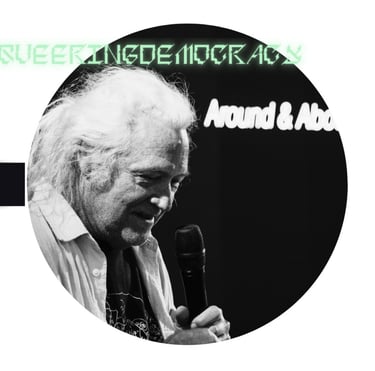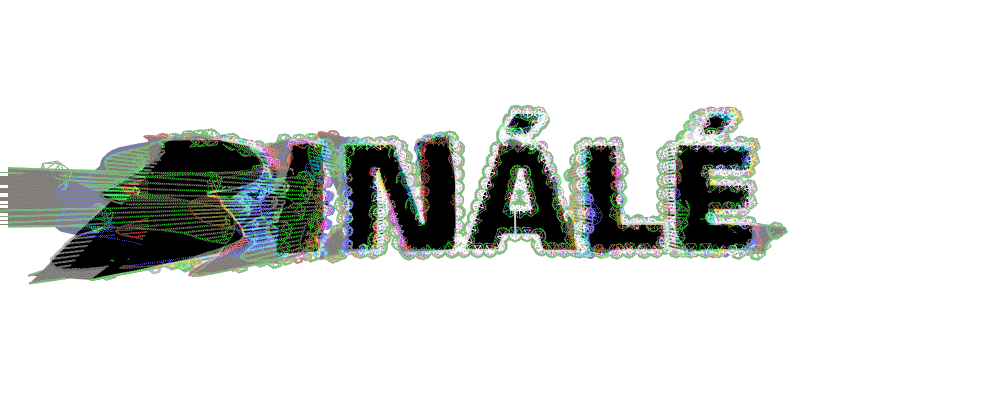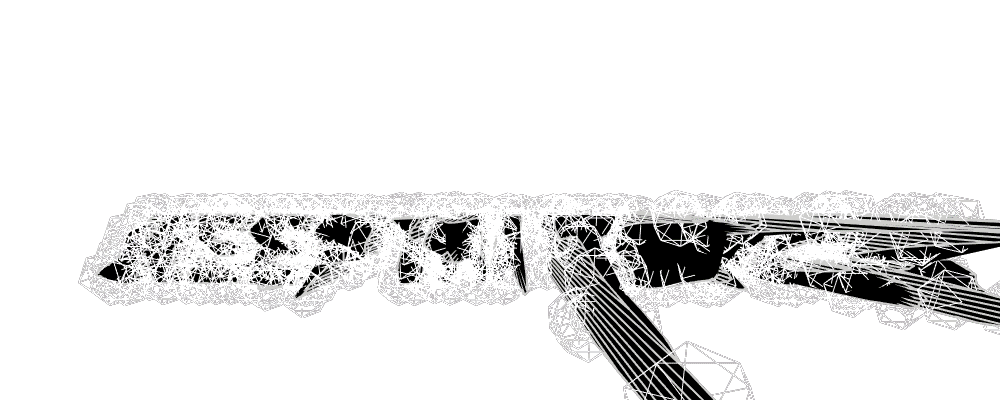GARY HILL
Gary Hill (b. 1951, Santa Monica, CA) has worked with a broad range of media – including sculpture, sound, video, installation and performance – since the early 1970’s. His longtime work with intermedia continues to explore an array of issues ranging from the physicality of language, synesthesia and perceptual conundrums to ontological space and viewer interactivity. Exhibitions of his work have been presented at museums and institutions worldwide, including solo exhibitions at the Fondation Cartier pour l’art contemporain, Paris; San Francisco Museum of Modern Art; Centre Georges Pompidou, Paris; Guggenheim Museum SoHo, New York; Museum für Gegenwartskunst, Basel; Museu d’Art Contemporani, Barcelona; and Kunstmuseum Wolfsburg, among others. Commissioned projects include works for the Science Museum in London and the Seattle Central Public Library in Seattle, Washington, and an installation and performance work for the Coliseum and Temple of Venus and Rome in Italy. Hill has received fellowships from the National Endowment for the Arts and the Rockefeller and Guggenheim Foundations, and has been the recipient of numerous awards and honors, most notably the Leone d’Oro Prize for Sculpture at the Venice Biennale (1995), a John D. and Catherine T. MacArthur Foundation Fellowship Award (1998), the Kurt-Schwitters-Preis (2000), and honorary doctorates from The Academy of Fine Arts Poznan, Poland (2005) and Cornish College of the Arts, Seattle, WA (2011).
THE WHISPER ROOM
2022
3:11
video
The Whisper Room, 2022
(Note: this text is also the text of The Slow Torque Bonsai, 2017, although spoken very differently)
Transcription
Sometimes
As we approach
Others approaching
An imaginary point coalesces
Before us
Our past trajectories
All the protagonists
All of a sudden
Amongst us
Resurrected as it were
Our whereabouts
The involuntary inventory begins
Sampled earth
Unknown holes
Literal things too numerous to name
Reminiscent of ancient signs
Too sober to absorb
The slow torque of bonsai
The warmth of what once was
Just enough
Fades away
Alone in the light
Abandoned wood avails itself
I brought you here for reasons I can’t disclose
I’ve worked long hours for this
There is no particular agenda in mind
Nothing here will make or break
Anything
You, them, or I
Each and every one
Like tormented insects
By the end it will not matter
Or you will have forgotten
The differences once sworn by
I hesitated
Before deciding
Not to be present
No doubt, a compromise
I apologize
Do you remember?
The bed
The island
The refuge
The swollen details
Shared memorabilia
Human propaganda
The fact that you are here
Has that dawned on you?
But don’t go
I wish there were a way
For you to smell my belly for the first time
All over again
I could stand before you
Peer down at the crown of your head
We could have gone to see a film
Committed to the tedium of plagiarized time
Enabling our being together
Within our separate thoughts
Would it suffice?
The Whisper Room
The Whisper Room is an existential confession where the narrator and receiver are interchangeable, and the personal message expands into universal poetic images within the short pauses in the monologue.
The story arrives at the body, which is directed by imagination, and even collides with the body, acknowledging that it can only be living and human with the ability to see oneself, which is thought and memory. This openness is further analyzed, connecting the essence of the world and the flesh of the body, and it arrives at the conclusion that they are made of the same material and that the flesh of the body and the flesh of the world mutually permeate and interpenetrate each other. The body is not simply one of the things perceived, but also the measure of all things perceived, the origin of the dimensions of the world. This self-reversal enables the expression of phenomena that are outside the body but coincide with it. Therefore the body, through its existential and phenomenological qualities, is also capable of serving as an invisible medium for the artwork.



